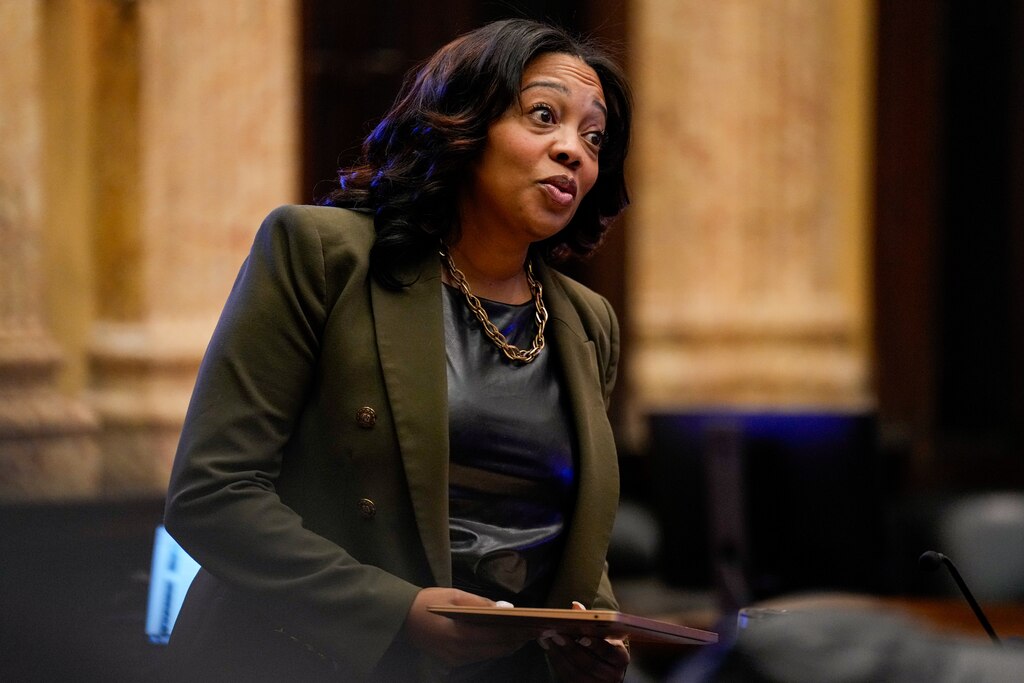After two cancellations, Baltimore leaders starting this week will launch a series of public hearings on the city’s drug overdose crisis, which has been the worst in the country.
Two City Council members had pushed for open forums to discuss the city’s overdose crisis after a series of stories by The Baltimore Banner and The New York Times last year. But Mayor Brandon Scott’s office pushed to cancel those scheduled hearings, warning that public discussions could jeopardize the city’s chance of winning a a big payout in a lawsuit against opioid manufacturers and distributors.
Last month, a Baltimore judge proposed slashing the $266 million verdict that the city won last year from a pair of drug distributors accused of contributing to the deadly opioid crisis, suggesting the companies pay just under $52 million or receive a new trial to determine damages. He is also expected to rule in the coming month on a city request for more money. The case is still pending.
But Councilwoman Phylicia Porter said now it’s time to give the public more answers.
“This addiction crisis is not new to Baltimore and this is an opportunity for folks to have a seat at the table,” said Porter, who chairs the City Council’s Public Health and Environment Committee, which will be hosting four of the six scheduled overdose hearings.
Porter’s hearings are scheduled for four consecutive Wednesdays starting this week and are expected to cover a range of topics, including the city’s response to the crisis, the allocation of opioid restitution funds and the oversight of addiction treatment programs. Health experts, city employees and members of the community are invited to testify and answer questions from council members at the meetings, according to a press release from Porter’s office.

Councilman Mark Conway has also called for two separate hearings starting this month in the Public Safety Committee to explore how Baltimore’s fatal overdose rate became such an outlier, what prevention strategies have worked or been ineffective, and a discussion of the city’s newly unveiled draft overdose response strategic plan.
“We should have had this discussion a long time ago,” Conway, the council’s public safety committee chair, said in an interview. “I think we can do a lot more work when we have an open discussion about what we’re seeing.”
Conway tried to hold public hearings on overdoses last July and in February, drawing the ire of the mayor’s office which accused him of elevating his personal profile at the expense of the city.
Conway said public conversations are important to help Baltimore leaders and the public understand the problem so they can start to fix it. In the past year, he said, he has sought outside expertise, but has had almost no opportunities to talk to the health department about overdoses, even in private.
At a press conference last week, Scott defended his decision to limit public discussions about the crisis during ongoing litigation.
“We know that folks have been wanting us to rush and say and do these things,” Scott said, adding, “My job is to do what’s in the best interest of Baltimore, not to make people feel good.”

During that same public appearance, Scott had unveiled a draft overdose response strategic plan, which will serve as a guide for how Baltimore can lower overdose deaths by 40% by 2040. To gather feedback on the plan, the Mayor’s Office of Overdose Response is holding its own series of public listening sessions in neighborhoods with high rates of overdoses, also starting Wednesday.




Comments
Welcome to The Banner's subscriber-only commenting community. Please review our community guidelines.